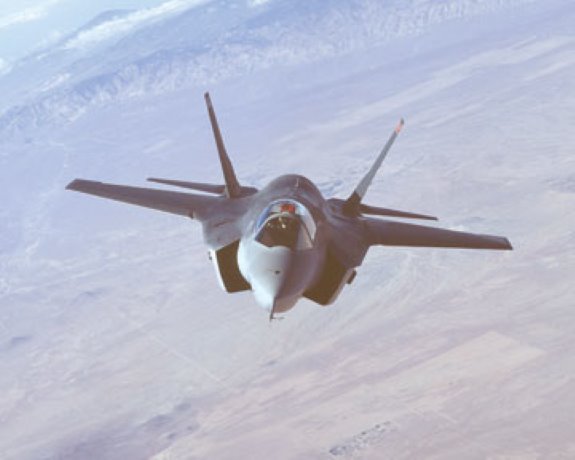A Winnipeg-based aerospace company is undertaking a multi-million dollar upgrade to a manufacturing facility to produce fighter planes for the U.S. and other NATO forces. Magellan Aerospace’s Bristol Aerospace division is in the preliminary stages of developing a plan to invest $120 million in its Winnipeg facility for the production of a new generation fighter-bomber.
VANCOUVER
A Winnipeg-based aerospace company is undertaking a multi-million dollar upgrade to a manufacturing facility to produce fighter planes for the U.S. and other NATO forces.
Magellan Aerospace’s Bristol Aerospace division is in the preliminary stages of developing a plan to invest $120 million in its Winnipeg facility for the production of a new generation fighter-bomber.
“There are a number of plans and options still being evaluated,” said Scott McCrady, senior director of marketing with Magellan.
“We have narrowed these options down a bit, but we are a long way from making a definitive decision. We are evaluating opportunities in terms of the product that will be manufactured. The timing is based on having facilities in place.”
Bristol Aerospace operates a 700,000-square-foot plant and aircraft hangars adjacent to the Winnipeg International Airport.
“One basic decision is whether or not we will expand our footprint,” he said.
“One option is to expand, but this is an option and not a given. We may do it with existing walls and retrofit the existing facility.”
McCrady said the specification work was done on the building, but design work hasn’t been completed yet.
The specification deals with temperature and humidity controls, as well as other aspects of constructing a manufacturing facility, such as the power supply.
Less than half of the $120 million, that will be invested for the production of the fighter planes, will be allocated to construction.
The remainder will be invested in new machinery and equipment.
“We will have an understanding of what is in front of us and how to deal with it, before the year is out,” explained McCrady.
“The aircraft is already flying and, by the end of the year, 19 will be flying in a flight test program.”
According to McCrady, Magellan is participating in the production of parts for three different variations of the Joint Strike Fighter (JSF).
Some of the parts are common to all aircraft and some are applicable to only one. Magellan has started producing parts for the production aircraft and output is expected to ramp up over the next five to seven years.
“The reality is there are a whole bunch of variables that go into making a decision,” said McCrady.
“The upgrade is a given and will happen one way or another. The facility will have to be brought up to standard to build components. To do this it may be necessary to build a new facility.”
The JSF project has significant implications for Canada’s defence policy and economic development.
The U.S. Air Force, Marine Corps and Navy plan to acquire almost 3,000 JSF aircraft.
There will be three versions, but they will have identical airframes, engines and cockpits, which creates economies of scale in terms of pilot training, production and maintenance costs.
The development of the fighter jet is the biggest and most expensive combat aircraft project in history, with an estimated price tag of US$200 billion.
To spread the burden of developing costly weapons systems, the U.S. has encouraged allied countries to buy the plane or at least become partners in the project.
Foreign orders could push total production to between 5,000 and 6,000 aircraft.
Established in 1930, Bristol Aerospace currently employs 675 people. Each year, the aerospace industry generates over $1.6 billion for the Manitoba economy and employs more than 5,100 Manitobans.











Recent Comments
comments for this post are closed